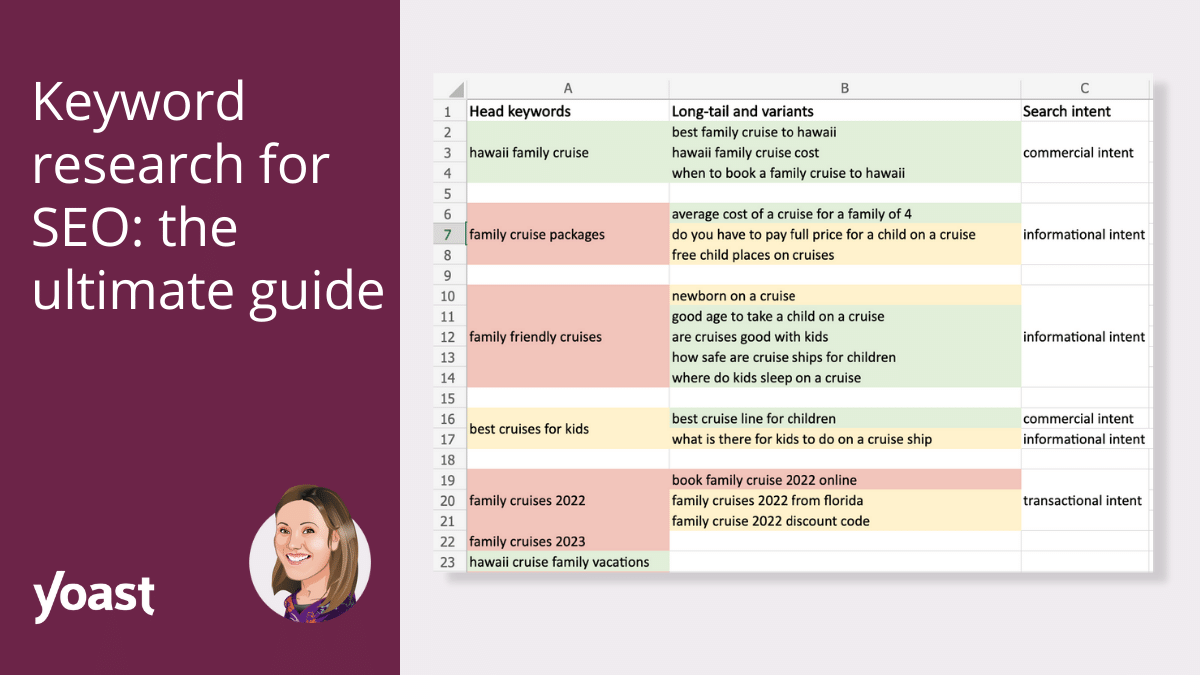The Ultimate Guide to Keyword Monitoring: Maximizing Your SEO Strategy

Introduction
In today’s digital landscape, search engine optimization (SEO) plays a vital role in driving organic traffic to websites. One of the fundamental aspects of SEO is keyword monitoring. This comprehensive guide will walk you through the ins and outs of keyword monitoring, offering valuable insights, strategies, and tools to help you maximize your SEO efforts. Whether you’re a seasoned SEO expert or a beginner looking to enhance your online presence, this guide will provide you with the knowledge and tools to excel.
Table of Contents
- What is Keyword Monitoring?
- The Importance of Keyword Monitoring
- Effective Keyword Research Techniques
- Implementing Keyword Monitoring Tools
- Analyzing and Refining Your Keyword Strategy
- Leveraging Long-Tail Keywords for Better Results
- The Role of Keyword Monitoring in Content Creation
- Local SEO and Keyword Monitoring
- Mobile Optimization and Keyword Monitoring
- E-commerce and Keyword Monitoring
- Voice Search and Keyword Monitoring
- Competitor Analysis and Keyword Monitoring
- Tracking Keyword Rankings
- Understanding Keyword Trends
- The Impact of Keyword Monitoring on User Experience
- Measuring ROI from Keyword Monitoring
- Balancing Keyword Density for Optimal Results
- Enhancing Click-Through Rates (CTR) with Keywords
- Keyword Monitoring and Link Building
- Best Practices for Keyword Monitoring
- Common Mistakes to Avoid in Keyword Monitoring
- SEO Algorithm Updates and Keyword Monitoring
- Frequently Asked Questions (FAQs)
- Conclusion
1. What is Keyword Monitoring?
Keyword monitoring is the practice of tracking and analyzing the performance of keywords relevant to your website or business. It involves observing keyword rankings, search volume, competition, and trends over time. By monitoring keywords, you gain valuable insights into how your website is performing in search engine results pages (SERPs) and can make informed decisions to improve your SEO strategy.
2. The Importance of Keyword Monitoring
Keyword monitoring is crucial for several reasons. Firstly, it allows you to understand how well your website is ranking for specific keywords. By tracking your keyword performance, you can identify areas for improvement and take necessary steps to enhance your visibility.
Secondly, keyword monitoring helps you stay ahead of the competition. By keeping a close eye on your competitors’ keyword rankings, you can identify new opportunities and adjust your strategy accordingly. Monitoring competitor keywords also allows you to benchmark your performance and make strategic decisions to outperform them.
Furthermore, keyword monitoring provides insights into the changing landscape of search behavior. Search trends evolve over time, and by monitoring keywords, you can identify emerging trends and adapt your content and SEO strategy to meet evolving user needs.
3. Effective Keyword Research Techniques
To implement successful keyword monitoring, it’s crucial to begin with effective keyword research. Here are some techniques to help you uncover valuable keywords:
Headings
Heading 1: Understanding the Basics of Keyword Research
When embarking on keyword research, it’s essential to have a solid understanding of the basics. This includes familiarizing yourself with industry-specific terminology, identifying relevant topics, and understanding your target audience.
Heading 2: Utilizing Keyword Research Tools
Keyword research tools such as Google Keyword Planner, SEMrush, and Ahrefs can provide valuable insights into search volume, competition, and related keywords. By leveraging these tools, you can uncover new keyword opportunities and gain a competitive edge.
Sub-Headings
Sub-Heading 1: Long-Tail Keywords: The Power of Specificity
Long-tail keywords are longer, more specific keyword phrases that attract highly targeted traffic. By targeting long-tail keywords, you can tap into niche markets and increase your chances of ranking higher in search results.
Sub-Heading 2: Analyzing Competitor Keywords
Analyzing competitor keywords allows you to identify gaps in their strategy and uncover new opportunities for your own website. By understanding which keywords your competitors are targeting, you can refine your own keyword list and gain a competitive advantage.
4. Implementing Keyword Monitoring Tools
To effectively monitor keywords, you need the right tools at your disposal. Here are some popular keyword monitoring tools to consider:
- Google Search Console: This free tool from Google provides valuable insights into your website’s performance in search results, including keyword rankings and click-through rates.
- SEMrush: A comprehensive SEO tool that offers keyword tracking, competitor analysis, and detailed reports to help you optimize your website’s visibility.
- Ahrefs: Known for its robust backlink analysis features, Ahrefs also offers keyword tracking capabilities to monitor your keyword performance and discover new opportunities.
By utilizing these tools, you can gain a deep understanding of your keyword performance and make data-driven decisions to improve your SEO strategy.
5. Analyzing and Refining Your Keyword Strategy
Once you have implemented keyword monitoring tools, it’s crucial to analyze and refine your keyword strategy. Here are some steps to follow:
- Analyze keyword rankings: Regularly review your keyword rankings to identify areas for improvement and track your progress over time.
- Identify low-performing keywords: Identify keywords that are not generating desired results and consider optimizing or replacing them with better alternatives.
- Discover new keyword opportunities: Continuously research and identify new keywords that align with your target audience’s search intent.
- Optimize existing content: Update your existing content to include relevant keywords and improve its visibility in search results.
- Monitor competitor keywords: Keep an eye on your competitors’ keyword rankings and identify opportunities to outrank them by optimizing your content.
By consistently analyzing and refining your keyword strategy, you can stay ahead of the curve and ensure your website remains optimized for maximum visibility.
6. Leveraging Long-Tail Keywords for Better Results
Long-tail keywords play a crucial role in SEO strategy. Here’s why you should leverage them:
- High intent: Long-tail keywords often indicate a higher intent to convert. By targeting specific phrases, you attract users who are closer to making a purchasing decision.
- Lower competition: Long-tail keywords are less competitive compared to generic keywords. This presents an opportunity to rank higher in search results and attract targeted traffic.
- Enhanced relevance: Long-tail keywords allow you to align your content with specific user queries, providing a more relevant and valuable experience.
- Voice search optimization: With the rise of voice assistants, long-tail keywords are becoming increasingly important. People tend to use more conversational phrases when conducting voice searches.
To leverage long-tail keywords effectively, conduct thorough research, and incorporate them strategically into your content.
7. The Role of Keyword Monitoring in Content Creation
Keywords and content go hand in hand when it comes to SEO. Keyword monitoring can greatly inform your content creation strategy. Here’s how:
- Topic ideation: Keyword monitoring helps you identify trending topics and keywords that your audience is actively searching for. This allows you to create relevant and engaging content that meets their needs.
- Content optimization: By monitoring keyword performance, you can optimize your existing content by incorporating relevant keywords and improving its visibility in search results.
- Identifying content gaps: Keyword monitoring can reveal keywords that are not adequately covered by your current content. This presents an opportunity to create new content that fillsthose gaps and attracts more organic traffic.
- User intent alignment: Keyword monitoring enables you to understand the intent behind user searches. By aligning your content with user intent, you can provide valuable information and improve the overall user experience.
8. Local SEO and Keyword Monitoring
Local SEO focuses on optimizing a website’s visibility for location-specific searches. Here’s how keyword monitoring can enhance your local SEO strategy:
- Location-specific keywords: Monitor keywords that include specific locations relevant to your business. This helps you identify opportunities to target local customers and increase your visibility in local search results.
- Google My Business: Monitor keywords related to your Google My Business listing. Optimizing your listing with relevant keywords improves your chances of appearing in the local map pack and attracting local customers.
- Online reviews: Monitor keywords associated with online reviews of your business. By tracking these keywords, you can address customer concerns and improve your online reputation.
- Local competitor analysis: Monitor keywords that your local competitors are targeting. This allows you to identify gaps in their strategy and adjust your own keyword targeting accordingly.
By incorporating keyword monitoring into your local SEO efforts, you can enhance your online visibility within your target geographic area.
9. Mobile Optimization and Keyword Monitoring
With the widespread use of smartphones, mobile optimization has become a critical aspect of SEO. Keyword monitoring can help you optimize your website for mobile users:
- Mobile-specific keywords: Monitor keywords that are frequently searched on mobile devices. Optimize your website and content to target these keywords and provide a seamless mobile experience.
- Page speed optimization: Monitor keywords related to page speed and mobile performance. Improve your website’s loading time and overall performance to enhance the mobile user experience.
- Responsive design: Monitor keywords related to responsive design and mobile-friendly websites. Maximizing Your SEO Ensure that your website is optimized for various screen sizes and devices.
By monitoring mobile-specific keywords, you can adapt your SEO strategy to cater to the increasing number of users accessing the web through mobile devices.

10. E-commerce and Keyword Monitoring
For e-commerce businesses, keyword monitoring is essential for driving traffic and sales. Here’s how it can benefit your e-commerce SEO strategy:
- Product-specific keywords: Monitor keywords related to your specific products or product categories. Optimize your product descriptions and titles to target these keywords and increase visibility in search results.
- Seasonal trends: Monitor keywords related to seasonal trends and holidays. By capitalizing on these trends, you can attract more customers during peak buying periods.
- Product reviews: Monitor keywords associated with product reviews and customer feedback. Addressing customer concerns and optimizing your product pages accordingly can boost sales and customer satisfaction.
- Competitor analysis: Monitor keywords that your competitors are targeting for their e-commerce websites. Identify gaps in their strategy and optimize your own website to gain a competitive advantage.
By actively monitoring keywords in the e-commerce space, you can refine your SEO strategy to attract more targeted traffic and drive sales.
11. Voice Search and Keyword Monitoring
With the rise of voice assistants and smart speakers, voice search has become increasingly prevalent. Here’s how keyword monitoring can help optimize for voice search:
- Long-tail conversational keywords: Monitor keywords that reflect natural language and conversational queries. Voice search users often phrase their queries as questions or complete sentences.
- Featured snippets: Monitor keywords that trigger featured snippets. Voice assistants often read out information from featured snippets, so optimizing your content for these keywords increases the chances of being featured.
- Local voice search: Monitor keywords that include location-specific phrases. Voice search users frequently ask for businesses or services near their location, so targeting local keywords is essential.
By keeping a close eye on voice search-related keywords, you can optimize your content to align with voice search queries and capture the growing voice search market.
12. Competitor Analysis and Keyword Monitoring
Analyzing your competitors’ keyword strategies can provide valuable insights and opportunities. Here’s how keyword monitoring can help with competitor analysis:
- Identify top-performing keywords: Monitor your competitors’ high-ranking keywords to understand their SEO priorities and areas of focus.
- Discover untapped opportunities: Identify keywords that your competitors are not targeting or have low rankings for. This presents an opportunity to optimize your own website for those keywords and gain an advantage.
- Track competitor backlinks: Monitor the keywords associated with your competitors’ backlinks. By understanding which keywords they are acquiring backlinks for, you can devise strategies to build similar high-quality backlinks.
- Benchmark your performance: Compare your keyword rankings and overall SEO performance against your competitors. Identify areas where you’re lagging and develop strategies to bridge the gap.
By incorporating competitor analysis into your keyword monitoring efforts, you can gain a competitive edge and refine your SEO strategy accordingly.
13. Tracking Keyword Rankings
Tracking your keyword rankings is essential to monitor the effectiveness of your SEO efforts. Here’s how to track keyword rankings effectively:
- Use a reliable rank tracking tool: Invest in a reputable rank tracking tool that provides accurate and up-to-date keyword rankings for your website. Tools like SEMrush, Ahrefs, and Moz offer comprehensive rank tracking features.
- Choose relevant keywords: Ensure that the keywords you track are highly relevant to your website or business. Focus on keywords that align with your target audience’s search intent.
- Regularly monitor and analyze: Set up regular monitoring and reporting intervals to track your keyword rankings over time. Analyze any fluctuations or trends to identify areas for improvement.
- Segment and prioritize: Group your keywords into relevant categories and prioritize them based on their importance and relevance to your business goals. This helps you focus your efforts on the most valuable keywords.
By consistently tracking your keyword rankings, you can measure the effectiveness of your SEO strategy and make informed decisions to improve your website’s visibility.
14. Understanding Keyword Trends
Keyword trends are constantly evolving, and staying informed is crucial for maintaining a competitive edge. Here’s how to understand and leverage keyword trends effectively:
- Monitor industry news and events: Stay updated on industry news, events, and trends that may impact keyword search behavior. This allows you to adapt your SEO strategy and target trending keywords.
- Use Google Trends: Google Trends is a powerful tool that provides insights into the popularity of specific keywords over time. Monitor keyword trends using this tool and adjust your strategy accordingly.
- Seasonal keyword optimization: Identify seasonal keywords and optimize your content to align with seasonal trends. This helps attract more relevant traffic during specific periods.
- Stay ahead of emerging trends: Continuously research emerging trends and keywords to position your website as an authority in your industry. Early adoption of emerging keywords can give you a competitive advantage.
By proactively monitoring and understanding keyword trends, you can optimize your SEO strategy to align with changing search behaviors and gain a competitive edge.
15. The Impact of Keyword Monitoring on User Experience
Effective keyword monitoring positively impacts user experience in several ways:
- Relevant and valuable content: By monitoring keywords, you can ensure that your content aligns with user search intent, providing relevant and valuable information.
- Improved website navigation: Keyword monitoring helps you identify gaps in your website’s structure and navigation. By optimizing your website’s structure based on keyword performance, you can enhance user experience and ease of navigation.
- Faster load times: By monitoring keywords related to page speed, you can optimize your website’s performance, resulting in faster load times. This improves user experience and reduces bounce rates.
- Better targeting of user needs: Keyword monitoring allows you to gain insights into the specific needsand pain points of your target audience. By tailoring your content to address these needs, you can provide a more personalized and satisfying user experience.
By prioritizing user experience through effective keyword monitoring, you can improve engagement, increase time spent on your website, and ultimately drive conversions.
16. Measuring ROI from Keyword Monitoring
Measuring the return on investment (ROI) from keyword monitoring is essential to evaluate the effectiveness of your SEO efforts. Here’s how to measure ROI effectively:
- Track organic traffic: Use website analytics tools like Google Analytics to track the organic traffic generated from your targeted keywords. Compare this data over time to identify trends and measure the impact of your keyword monitoring efforts.
- Set conversion goals: Define conversion goals that align with your business objectives, such as form submissions, purchases, or newsletter sign-ups. Monitor how keyword monitoring contributes to achieving these goals.
- Monitor engagement metrics: Analyze engagement metrics like time on page, bounce rate, and page views to assess the quality of traffic generated by your targeted keywords. Higher engagement indicates better targeting and relevancy.
- Calculate revenue generated: If applicable, track revenue generated from organic traffic attributed to your targeted keywords. This can provide a clear indication of the financial impact of your keyword monitoring efforts.
By consistently tracking and measuring ROI from keyword monitoring, you can make data-driven decisions, optimize your strategy, and allocate resources effectively.
17. Balancing Keyword Density for Optimal Results
Keyword density refers to the percentage of times a keyword appears within a piece of content. Balancing keyword density is crucial for optimal SEO results. Here are some guidelines:
- Natural and relevant content: Focus on creating high-quality, engaging content that naturally incorporates keywords. Avoid keyword stuffing, which can lead to a poor user experience and potential penalties from search engines.
- Keyword placement: Place keywords strategically in important elements such as headings, subheadings, and the opening and closing paragraphs. This helps search engines understand the topic and relevance of your content.
- Variety and LSI keywords: Use a variety of related keywords and latent semantic indexing (LSI) keywords to provide context and depth to your content. This improves the overall relevancy and readability of your content.
- Readability first: Prioritize readability and user experience over excessive keyword usage. Your content should flow naturally and be easy to understand for human readers.
By striking the right balance between keyword density and user experience, you can optimize your content for search engines while providing valuable and engaging content to your audience.
24. Conclusion
Keyword monitoring is a critical component of a successful SEO strategy. By effectively tracking and analyzing keyword performance, you can optimize your website’s visibility, stay ahead of competitors, and provide a valuable user experience. Implement the best practices outlined in this guide, leverage the power of keyword monitoring tools, and adapt your strategy to align with evolving search behaviors and algorithm updates. With diligent keyword monitoring, you can maximize your SEO efforts and achieve long-term success in the digital landscape.


:max_bytes(150000):strip_icc()/IFRS_Final_4194858-00f3f3a4c8334cc1aa13b29e692935db.jpg)



